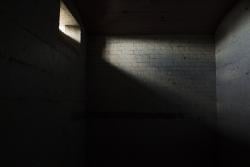This is CCR's weekly "Frontlines of Justice" news round-up, keeping you in the loop about what we've been up to and what's coming soon. Check it out every Monday, your one-stop-shop for CCR opinions, news coverage, reports from court appearances, upcoming events, and more!
Two years after Ashker v. Governor of California: More work to be done
We marked the two-year anniversary of the historic settlement of Ashker v. Governor of California, which put an end to indefinite solitary confinement in California, by asking the court to extend the terms of the settlement by one year. In our motion, filed with co-counsel Nov. 20, 2017, we noted that substantial reforms are still needed and the California Department of Corrections and Rehabilitation (CDCR) continues to violate the constitutional rights of the Ashker class members.
[caption caption="Photo taken by flickr user jmiller291 and used under Creative Commons Attribution 2.0 Generic" align="left"] [/caption]
[/caption]The Ashker litigation followed coordinated hunger strikes undertaken by thousands of prisoners statewide. The 2015 settlement resulted in nearly 1,600 prisoners being released into general population, but hundreds of class members were transferred to Level IV prisons, where conditions are similar to the Special Housing Units (SHU), with many spending the same or more time isolated in their cells than when they were in SHU.
We will continue to hold the governor of California accountable until the terms of the settlement are met.
Report shows lasting consequences of SHU post-release
There have been numerous reports about the negative impacts long-term solitary confinement can have on prisoners, but what happens when those prisoners are released into the general population without mental and psychological support?
Human Rights in Trauma Mental Health Lab, Stanford University prepared a report for CCR that answers that question and makes recommendations for the best way to ease prisoners subjected to long-term solitary confinement back into the general population. The first-ever in-depth report on the subject, Mental Health Consequences Following Release from Long-Term Solitary Confinement in California, is based on interviews at three maximum-security prisons and California Department of Corrections and Rehabilitation (CDCR) reform.
According to the report, the emotional numbing and desensitization that commonly results from prolonged solitary continues to be a problem long after release, and significant alterations in cognition, perception, concentration, and memory not only persist, but worsen. Ashker v. Governor of California class members reported ongoing anxiety, paranoia, and hypervigilance. They emphasized the importance of jobs, mental health and psychological services, and other rehabilitative program opportunities to ease this transition, but expressed dismay about the inadequate options offered by the CDCR—in particular, they had reservations about programs run by correctional officers, and requested services and support from non-CDCR staff.
We are sending the report to corrections and government officials around the country.
CCR receives Thomas Merton Center award
The Center for Constitutional Rights is the recipient of the 45th Annual Thomas Merton Award.
Vincent Warren, CCR's executive director, accepted the award last week. The Thomas Merton Center and CCR have a "shared history," said Gabriel McMorland, executive director of the Thomas Merton Center.
The Thomas Merton Center works to build a consciousness of values and to raise the moral questions involved in the issues of war, poverty, racism, classism, economic justice, human rights, and environmental justice. Examples of our shared history include mutual support of nuclear abolition, the closing of Guantanamo Bay, fighting for immigrant and prisoner rights, and an end to the wars in Iraq and Afghanistan.
Mark your calendars: Upcoming events
CCR is co-sponsoring "The Criminalization of Home: Organizing to Protect Communities from NYC to Palestine," a panel that explores the different ways criminalization fractures communities and separates people from the place(s) they call home. Activists from New York City to Palestine will look at how state violence enforces a system of racialized dispossession, whether through eviction, deportation, incarceration, or colonization and ethnic cleansing.
Speakers include Sahar Francis of Addameer; Darializa Avila-Chevalier of Black Youth Project 100; Mujahid Farid of Release Aging People in Prison (RAPP). The panel will be moderated by Bina Ahmad.
The panel is from 7-9 p.m., Wednesday, Nov. 29, 2017, at Verso Books, 20 Jay St., Brooklyn, NY 11201. Along with CCR, the event is co-organized by Adalah-NY: Campaign for the Boycott of Israel, Addameer Prisoner Support & Human Rights Association and Black Youth Project-100 NYC chapter.
As part of its annual 16 Days of Activism Against Gender-Based Violence campaign, the Center for Women's Global Leadership and various Rutgers University partners will present a film screening and panel discussion about the challenges facing the LGBT community in Uganda. The documentary, “Call Me Kuchu,” tells the story of David Kato, Uganda's first openly gay man, and retired Anglican Bishop Christopher Senyonjo as they work against the clock to defeat the government bill that threatens to make homosexuality punishable by death.
Following the screening, CCR Senior Staff Attorney Pamela Spees and Frank Mugisha, executive director of Sexual Minorities Uganda, will discuss the current climate for the LGBT community in Uganda. Rasha Moumneh from the Center for Women's Global Leadership (CWGL) at Rutgers University will moderate the discussion.
The screening and discussion are from 6-9:30 p.m., Nov. 29, 2017 at Rutgers University Student Center, 126 College Ave., New Brunswick, NJ 08901.

